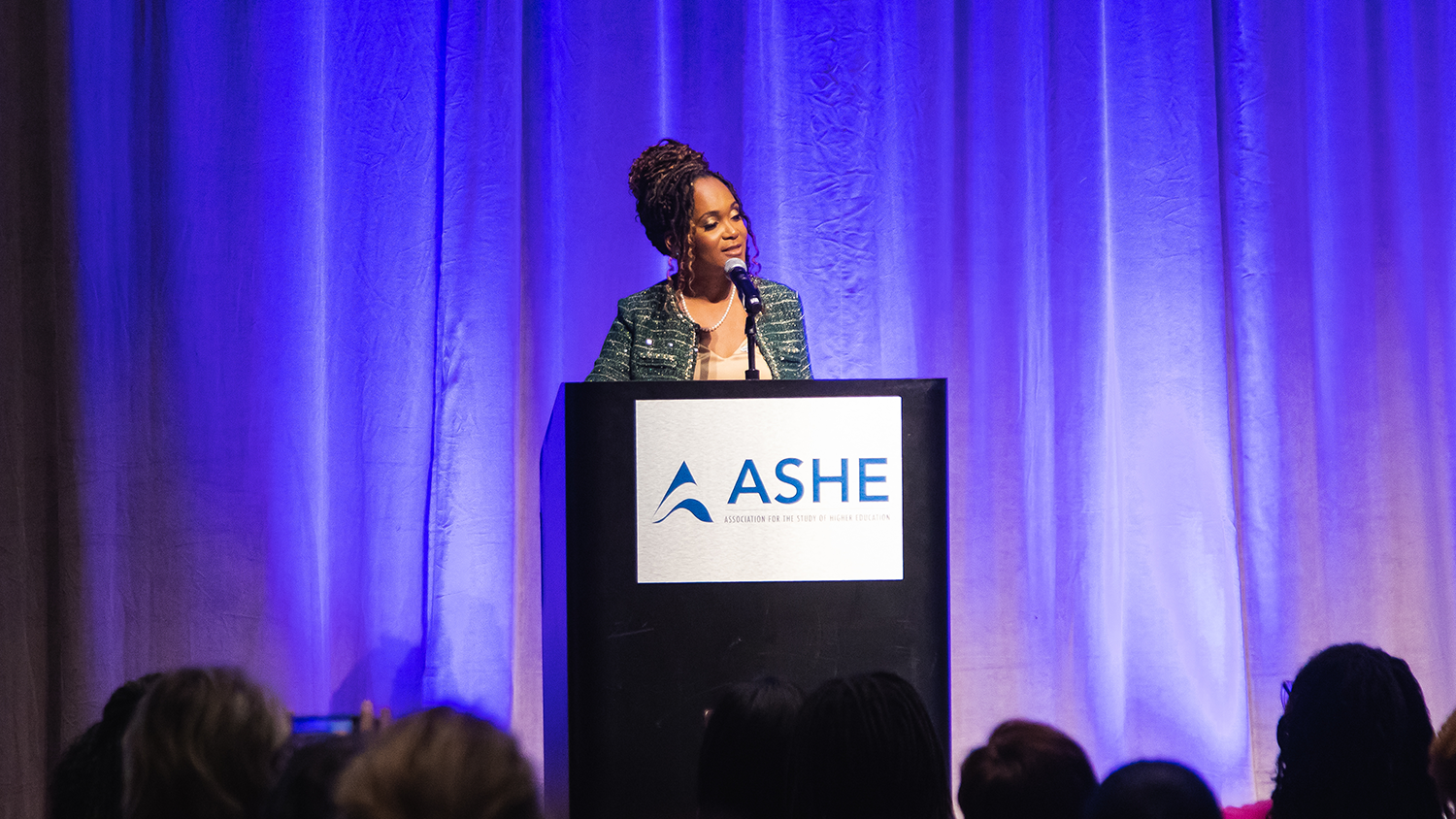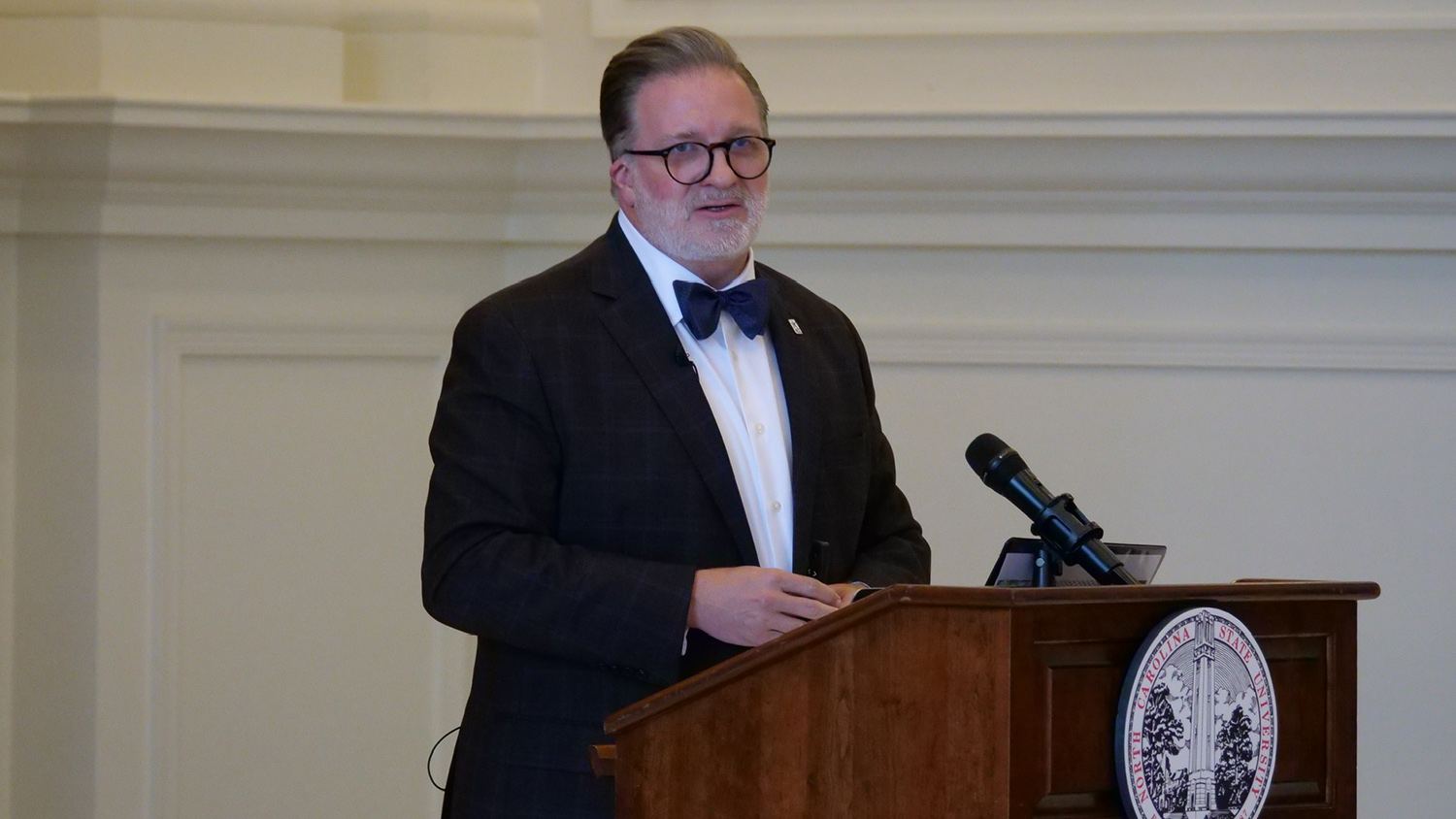‘I Have New Insights and Perspectives that Will Inform My Teaching, Research and Scholarship’: Alumni Distinguished Graduate Professor and Senior Advisor for Advancing Diversity, Equity, and Inclusion Joy Gaston Gayles Reflects on ASHE Presidency

For NC State College of Education Alumni Distinguished Graduate Professor and Senior Advisor for Advancing Diversity, Equity, and Inclusion Joy Gaston Gayles, attending the 2022 conference as president of the Association for the Study of Higher Education (ASHE) was a “magical” experience.
During the November 2022 Association for the Study of Higher Education (ASHE) annual conference in Las Vegas, she saw her vision for the conference unfold. There were 10 presidential sessions, one of which invited HBCU presidents and senior administrators from across the country, including the president of her alma mater, Shaw University. She also attended sessions related to college athlete activism and the impacts of the COVID-19 pandemic on higher education and learned from keynote speeches focused on systemic oppression globally and in technology.
All of these sessions exemplified Gayles’ chosen presidential theme of “humanizing higher education.”
“I really love how the members embodied humanizing higher education at the conference. I’ve been a member of ASHE for 20 years, and I felt so much good energy at this year’s conference,” she said. “People were excited about sharing their work in humanizing ways, and you could literally feel it in the atmosphere. This was also the largest conference attendance we’ve had since the pandemic, so I think people were genuinely happy to see and be in community with each other again.”
As ASHE president, Gayles also had the opportunity to commission a working group of scholars to study the impacts of the COVID-19 pandemic on postsecondary education. This involved a group of higher education scholars who have been studying COVID impacts for the past three years. She believes their collective wisdom reflected in the COVID-19 statement released this week will help institutions reflect and move forward in positive ways from the effects of the pandemic.
As Gayles steps down from her role as ASHE president and prepares for her new role as head of the Department of Educational Leadership, Policy, and Human Development in the College of Education, she reflects on why she believes it was important to focus on humanizing higher education, the most rewarding aspects of serving as ASHE president and how the experience has helped her to grow as a scholar leader.
The following Q&A has been edited for length and clarity.
How do you believe you have made progress in working toward the goal of humanizing higher education during your tenure as president?
Each president gets to select a presidential theme. My theme, of course, was humanizing higher education. This theme came from an authentic place. I feel like we’re at an inflection point in education and society where moving forward effectively will require something fundamentally different. One of the reasons I agreed to run for ASHE president was the idea that I would have an opportunity to shape the field for years to come. Although I had no idea what that would be at the time – we were at the onset of the global health pandemic, not realizing fully how serious the impacts would be – I remained hopeful about figuring it out, figuring out and thinking through what we needed as an association, as a field and as a community of engaged scholars in this day and time.
As you prepare to step down as ASHE president, what do you believe have been the most rewarding aspects of serving as ASHE president?
Serving as ASHE president was definitely a rewarding experience. I really enjoyed getting to know ASHE members better and learning more about them and their work. As chair of the board of directors, I tried to learn from and connect to board members and engage with them in meaningful ways as people first. Serving as president provided a rewarding space to deepen my knowledge of and respect for ASHE and how we are actively working to become an organizationally just association. I also love bringing my worlds together in cool ways through partnerships. One example was offering the National Center for Faculty Development and Diversity (NCFDD) 14-day writing challenge for ASHE members to work on conference proposals and complete their papers. It created a sense of community among members before the conference and led to an increased number of proposals submitted well before the deadline.
How do you believe your term as ASHE president helped you to grow and learn as a scholar at NC State? Anything new you’ve learned through this role that you are applying to your teaching or research?
Leading an organization in the midst of a global health pandemic is hard work filled with surprises and twists and turns that you can’t always anticipate. I’ve learned an incredible amount about effective leadership.
I tried to remain humble and learn when I didn’t get it quite right – I now feel like I have a set of leadership skills from this experience that I need to figure out what to do with. Because I was reading a lot during my term as ASHE president, engaging with scholars through the ASHE presidential podcast series, and writing my presidential address, which is a different kind of scholarship, I have new insights and perspectives that will inform my teaching, research, scholarship and leadership. My curiosity has been piqued in several ways that will likely turn into research projects down the line.
How do you hope to see the next ASHE president carry on the work you started?
Ana Martínez-Alemán is our 2023 ASHE President. She’s already off to a fantastic start encouraging us to consider the three P’s: purposes, politics, and practices of higher education research, scholarship, practice and praxis. The theme asks us to consider powerful questions that encourage us to boldly reckon with challenges that need our urgent attention as researchers and scholar-leaders. I’m excited about where we are headed as we work to enact our new strategic plan and fulfill our mission to foster scholarly inquiry to increase knowledge and understanding of postsecondary to enhance policy and practice.
- Categories:

